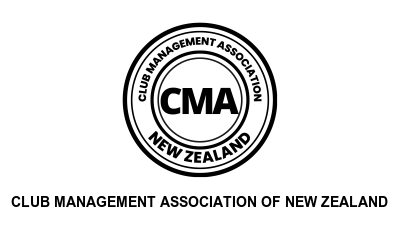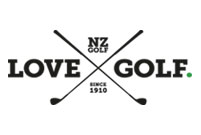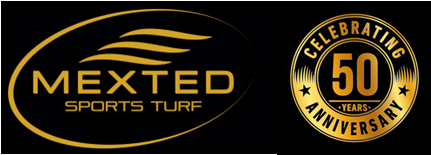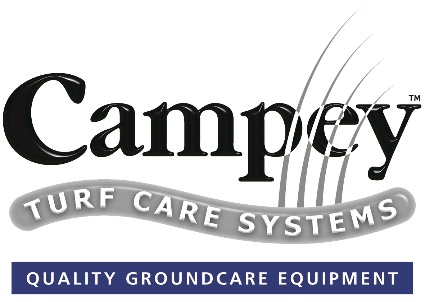Professional Development
Competencies
Management to Leadership
A model for club management
Originally adopted by the Club Management Association of America (CMAA) in 2004, this model was licensed to GMA NZ in 2015, enabling us to offer the programme in New Zealand.
Core Competencies of a Club General Manager
The model is built on the principle that a General Manager is responsible for three major areas:
- Operations
- Assets / Investments
- Club Culture
Today, this is best described as the GM being the professional responsible for the many facets of club operations and the broad range of responsibilities that come with them.
Foundation Competencies
Conceptual Skills
1. Club Governance
Educates board on best practices; GM performance reviews; Board self-evaluation; strategic planning; club mission and vision; governance succession plan; board and committee orientation; roles and responsibilities; board goals and objectives; club elections and bylaws; promoted fiduciary duty; record retention; GM/COO role; meeting management; forecasts and explains club industry challenges.
2. Interpersonal Skills
Transparency; active listener; timely and constructive feedback; tactful; self-aware; builds rapport; effective presenter; speed reads; diffuse conflicts; negotiates effectively; effective communicator; articulate; builds a network.
3. Leadership
Personal strategic plan; self-improvement; time management; ethics;, critical thinking skills; change management; innovation; industry trends; diversity and respect; coaches; mentorship; delegation; empower others; core values; personal mission and vision; inspiring; motivation; collaborative; philanthropic; empathetic; role model; represents club brand.
Administrative Skills
4. Accounting, Finance, and Data Analytics
Understands financial standards; data analytics; annual audit; financial statements; budgeting; capital; data collection systems; forecasting; variance analysis; benchmarking; ratios; lease vs. buy; labor costs and compensation; communicates data; internal controls.
5. External Governmental Influences
Compliance; legal concepts and requirements; applies applicable laws; safe and secure working environment; compensation laws; independent contractors; copyright, tax, health and safety laws; tax status; private status; federal forms; data protection and privacy; licensure; zoning; permitting; waterways.
6. Human and Professional Resources
Employee policies; employee recruitment, selection, orientation, and onboarding; employee culture; compensation program; employee performance reviews; human resource strategy; succession planning; correction action plans; employer of choice; confidentiality; compliant.
7. Membership and Marketing
Member and guest service management program; marketing principles; traditional and digital media; societal trends; publicity; public relations; membership retention and recruitment; societal preferences; situational analysis; marketing research.
Technical Skills
8. Facilities Management
Risk management, liability, and safety issues; maintenance; facility assessments; renovations; construction; reserve analysis; building permits; construction contracts; legal responsibilities of contracting parties; capital project communication; trends; plans for maintenance and capital projects.
9. Food and Beverage
Food/beverage purchasing, receiving, storing, and inventory control; dining strategies; consistent food and service quality; F&B operating budget; forecast need and track monthly progress; responsible service of alcoholic beverages; food-related allergies; foodborne illnesses; recalls; understand F&B competitors; F&B laws; menu planning.
10. Golf, Sports, Recreation, and Wellness
Golf, wellness, sport, recreation, spa, fitness, aquatics, family and youth programming; conduit of trends; retail offerings; amenities are offered, efficiently managed, maintained and operated; facility infrastructure; amenity financial planning and operating budgets; sport emergency protocol; fairness in sport; working knowledge of sport; sport etiquette.
11. Information Technology
Integrated technology; technology strategy; technology management; cybersecurity; back up and disaster recovery plans; reservation systems; member data management; software selection; planning for technology.
Understanding Your CMAA Education Credits
Education takes many forms, but for certification purposes, CMAA education is defined as a structured experience that supports purposeful growth in club management and can be assessed by CMAA.
- Credits are awarded for CMAA/CMI-endorsed programmes and CMAA-approved equivalents.
- At least half of the total Education Credit requirement must come from CMAA-sponsored programmes.
Types of Credits Offered
- CMI Credits
- Association Activity Credits
- Chapter Education Credits
- Workshops
- Other Education Credits
CMI Credits
Club Management Institute (CMI) Education Credits are awarded for CMAA National Education, including:
- Education sessions at the World Conference on Club Management & Club Business Expo
- Leadership/Legislative Conference
- Mid-Management Conference
- All BMI Programmes
- GMA NZ-hosted forums, workshops & conferences
- Local and national workshops
- Most CMAA University courses
Requirement:
- Managers working toward their CCM need a minimum of 100 credits from CMAA (CMI or Chapter Education).
- To maintain CCM, 60 of the 120 credits must be CMI or Chapter Education credits.
Association Activity Credits
Credits are awarded for involvement with the Association, including:
- Renewing CMAA Membership
- Renewing GMANZ Membership
- Attending GMA NZ Business Meetings
- Serving as a National/Regional Officer or Chair
- Serving on the GMA NZ Board or local branch executive
- Attending CMAA or GMA NZ conferences
- Entering and/or winning CMAA Idea Fair
- Speaking on club management
- Publishing an industry article
- Attending or hosting a webinar
- Mentoring in the GMA NZ Programme
Requirement:
- Managers working toward their CCM need 25 Association Activity Credits.
Chapter Education Credits
Earned at GMANZ level, with members kept informed of upcoming events by local branches.
Requirement:
- Managers working toward their CCM need 25 Chapter Education Credits.
- To maintain CCM, 60 of the 120 credits must be CMI or Chapter Education credits.
Workshops
Workshops are structured educational programmes with at least six hours of instruction (excluding breaks) on a club-specific topic and must include an assessment of learning.
Approved workshops include:
- Biannual GMANZ Conference
- Joe Perdue CCM Review Course
- Any BMI programmes not required for certification
- CMAA World Conference (when over and above the one required for certification)
Note: GMANZ hosts workshops, and members are kept informed by their local branches. All workshops, regardless of length, count as one workshop.
Other Education Credits
Credits can also be earned from:
- Allied Associations
- Certification programmes
- Accredited college or university coursework or degrees
These credits are especially useful for managers working toward their CCM (total 300 credits) or maintaining certification (120 credits).
Maintaining the CCM Designation
The Certification Maintenance Requirement (CMR) ensures ongoing professional development.
- Certified Club Managers must obtain 120 education credits within each five-year certification period.
- At least 60 credits must be from CMAA education (CMI and/or GMA NZ).
- Meeting the CMR maintains the CCM designation for another five years.
If a CCM fails to meet the requirement, they risk losing the designation and must sit the CCM exam again to regain it.



























